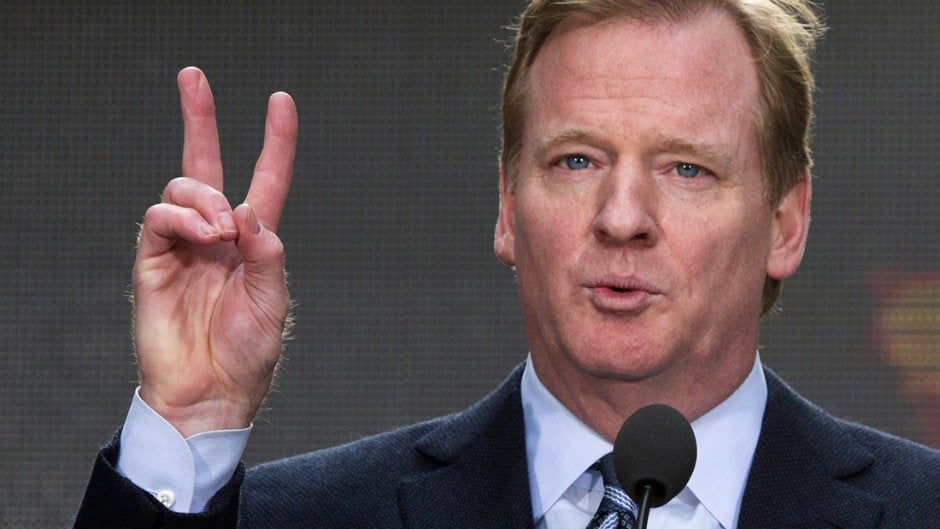The best thing we can do for abusive NFL players is focus more on them
It’s time for another midnight run away from home to escape my violent stepfather.


It’s time for another midnight run away from home to escape my violent stepfather.
Hmmm, my uncle delivered on his promise to give my aunt a black eye.
My new uncle is threatening to burn down the house; he’s got a can of gasoline.
This is my childhood, in a series of flashes, where the husbands in my world did not yet know how to be men. I’m taking a risk even writing about this because the unspoken family rule is we, decades later, don’t talk about the violence.
And that’s the problem with domestic violence: It has a sneaky, undercover, rotten way of implicating everyone in the orbit of a warring couple in a lie. Now that it looks like the NFL knew the extent of Ray Rice’s cruelty to his wife, Janay, it’s clear to me the league was in on the cover-up.
We’ll have to wait until former FBI Director Robert Mueller completes his league investigation to know for sure how much the NFL knew and when they knew it. But we are definitely sure Ray is an unrepentant abuser. His fauxpology, where he offered regrets to his fans but not his wife, is a case in point. The fact that he has allowed Janay to defend him publicly, implicating herself on the lie and killing her integrity and credibility as a woman with no moral authority or agency is another way he continues to abuse.
Here’s a hard truth: Abusers can change but only when they recognize the depth of their cruelty and betrayal. But they need to be checked in the form of a network—family, community, jobs, social networks—that does not accept domestic violence as normal, sweeping it aside as a mere mistake and not the crime it is. The scorched-earth policy of firing Ray from his team, suspending him from the league, the calls for Janay to leave, the demands to call the police are only short-term solutions.
Change isn’t magical, however. It takes time, is extremely difficult and can’t be done half-heartedly by agreeing to simply yell instead of hit. In fact, while male abusers can change their behaviors, it doesn’t happen often. An abuser might need to go it alone while he unlearns the learned behavior of battery.
Like 25% of women who suffer domestic abuse, according to the National Coalition Against Domestic Violence, my mother ran from my stepfather so many times, the across-the-street neighbors started coming out on their porch with bowls of popcorn to catch the show. The physical violence only stopped when she took the three of us to live at a friend’s home, for good this time, until he wooed her back, promising to change.
My fire-breathing uncle eventually understood the damage he was doing. My aunt wouldn’t stay with another man who hit her. He admitted he needed to learn how to be a man, working on himself and bringing my aunt in on the process. Employers had no role in what I witnessed, for good or bad, but I can say my stepfather’s church family was no help whatsoever. And that’s how that institution failed, much like the NFL, and others that simply move out of the way of flying fists, business as usual.
Stakeholders like Ray’s employer should know that telling the truth and delivering consequences swiftly is actually a kindness that frees abusers to take stock of their actions and get help to go forward, either with their spouses or alone.
The NFL can change, too.
The National Organization for Women has the right idea in demanding the league “gather factual data about domestic violence, dating violence, sexual assault and stalking within the entire NFL com—not just regarding the Ray Rice incident—and to recommend real and lasting reforms,” according Terry O’Neill, NOW president.
And the 16 female senators who called for a real zero-tolerance policy against domestic violence in the NFL have shown incredible leadership on an issue that counts. In a letter sent to Commissioner Roger Goodell, the senators write: “Tragically, this is not the only case of an NFL player allegedly assaulting a woman even within the last year. We are deeply concerned that the NFL’s new policy, announced last month, would allow a player to commit a violent act and return after a short suspension. If you violently assault a woman, you shouldn’t get a second chance to play football in the NFL.”
Because the NFL is a special kind of high-stakes pressure cooker that thrives on on-the-field violence, the league has a greater responsibility to invest some of its $9 billion annually in reducing harm by evaluating and treating potential bad behaviors like domestic violence, and being the national model of zero-tolerance for those behaviors.
Ongoing evaluation and skills building must take place if we are to keep players from taking their frustrations out on their spouses. This kind of outreach, perhaps done with the help of therapists and social workers, must be baked in.